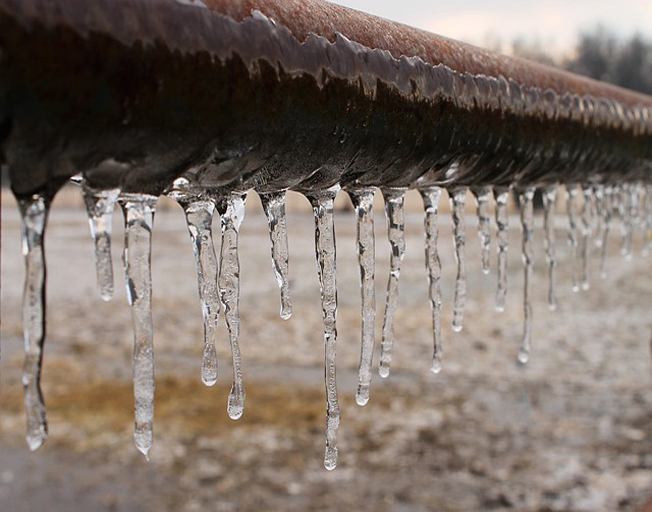
By WMBD-TV
BLOOMINGTON – State Farm is asking Illinois residents to take steps to make sure their pipes do not freeze.
According to data from State Farm Insurance, Illinois was the state with the second-highest number of frozen pipe claims. The company said Illinois residents made more than 2,800 claims, and State Farm paid more than $72.2 million.
From August 2022 to August 2023, the insurance giant paid more than $806 Million for more than 32,000 claims of frozen pipes.
The chance of frozen pipes can occur whenever temperatures dip below 32 degrees and can occur in homes with plastic and copper pipes.
A 1/8″ crack can spray more than 250 gallons an hour, which can lead to flooding, and leave homeowners to deal with potential mold and structural damages.
State Farm encourages homeowners to take several preventative measures to reduce the risk of water freezing in their pipes.
- Insulate your pipes in your home’s attic or crawl space.
- Use heat tape or thermostatically controlled heat cables to wrap on your pipes.
- Seal leaks that allow cold air inside near where pipes are located. Look for air leaks around electrical wiring, dryer vents, and pipes, and use caulk or insulation to keep the cold out.
- Disconnect garden hoses and, if possible, use an indoor valve to shut off and drain water from pipes leading to outside faucets.
- Let warm water drip overnight. A trickle of hot and cold water might be all it takes to keep your pipes from freezing.
- Keep your thermostat set above 55 degrees, even when on vacation or extended periods away from home.
- Open cabinet doors to allow heat to get to un-insulated pipes under sinks and appliances near exterior walls.
If your pipes do freeze, State Farm encourages property owners to keep some things in mind:
- If you turn on your faucet and no water comes out, you can leave it on and contact your plumber.
- You should never try and thaw a pipe with an open flame because it can be a fire hazard.
- A hairdryer can be a possible source of heat if you are not near standing water or flammable materials. You should start by heating the faucet and moving to the coldest section of the pipe.
- If your pipes do burst, you should turn off the main water shut-off valve for the home. Everyone in the home should know where the valve is in case of an emergency.
WMBD-TV can be reached at [email protected].






